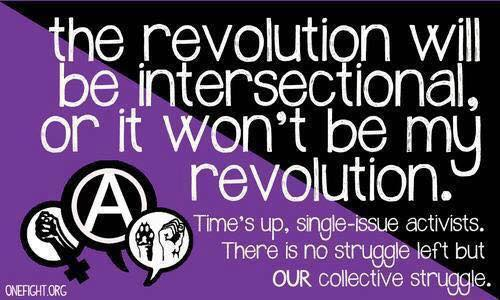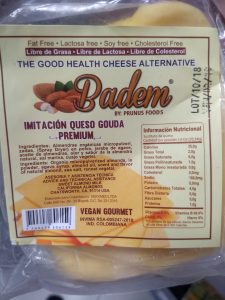“When you challenge an oppressor, the first thing you have to be able to say is ‘You are not who you say you are’. And what identitarianism does is that it deprives us of the ability to say that” – Stuart Parker
This is a great interview with Stuart Parker – a guy I hadn’t heard of before this – on the state of the left. I am generally not a big fan of Meghan Murphy’s youtube content (though I think she is an excellent writer when it comes to feminism) but this interview hits it out of the park. There is a lot that’s spot on and well articulated regarding transactivism as a new McCarthyism, the stupidification of the left and how gender identity fits into that, identitarianism and more.
A couple of comments: Regarding this stupidification, he points out that the billionaire class pushes gender identity ideology because it’s in their interest that we be incapable of having coherent conversations with each other. While I appreciate that he names that this is what’s happening, I think it is only part of the picture. They don’t mention in the same context that this is also a direct attack on women’s rights, which also serves the billionaire class (not to mention men as a whole) because the exploitation and disempowerment of women is foundational to capitalism and especially to several industries that are currently flourishing.
While this is mitigated by the comments on billionaires in a different segment, they do also depict the gender ideology movement as being genuinely about the safety of trans people, which is misleading. For example, they rhetorically ask who it serves to repeat the mantra “transwomen are women” and assert that it serves no one, not even trans people. But this isn’t true. It serves men as a class for women to be erased politically, legally and conceptually, and for women’s spaces and resources to be up for grabs again by men. Many transactivists and supporters and funders of the movement are not trans themselves, however I think that in recognizing this point they are also portraying all trans people as being separate from the larger movement, outwardly gender non-conforming and at risk of violence. It seems that the speaker is referring to the trans people of 30 years ago and not taking into account how the definition has changed, especially with gender self-ID. There are men who identify as women, present entirely as male and are therefore not remotely at risk of male violence or in need of third spaces. There are people who identify as trans and also participate in misogynistic harassment and advocacy, who are motivated by misogyny and not merely the discomfort of gender roles or a sexed body. These are not mutually exclusive.
On the question of third spaces, they point to the example of transwomen pushing for separate bathrooms in Thailand as an obvious solution, but that doesn’t square with the current reality of the movement here. Instead, it generously presumes that the problem the movement seeks to address is male violence against trans-identified males, which isn’t true. If it were, why admit entirely male-presenting men to women’s spaces? Third spaces aren’t the solution most advocated for because both on a micro level and certainly on a macro level it’s not only about safety.
Regarding McCarthyism: this is not unique to the gender movement but is instead a fact of woke culture in general. In the few years that Seed the Commons (STC, the organization I co-founded) was active in local animal rights circles, we experienced a lot of unethical behavior from within the movement. I’ve written about the backlash I received for my disbelief in gender, but it actually started before that. One of the issues that people took with us was that we weren’t seen as sufficiently opposed to Direct Action Everywhere (DxE), an animal rights organization/network that is highly contentious and maligned within the movement. My organization never partnered with DxE and none of the founders or board members of Seed the Commons were ever members of DxE. In fact, I have had my own reservations about, and frustrations with, DxE. But what we did was enough to tarnish us as friends of the bad guys and therefore bad guys ourselves.
This is what we did: In 2016, Seed the Commons signed a letter of support for DxE when they were facing an eviction, we shared a video of theirs on Facebook, and we invited one of the founders of DxE to speak at our conference. For context, we have shared content from numerous groups, many of which are not vegan. I also invited a wide range of speakers to my conference, again, many of which weren’t vegan. Somehow this was never an issue for animal rights folks, but any sign of anything other than hostility towards DxE was subject to veritable policing.
On the letter and video: When the Berkeley Animal Rights Center (the de facto DxE headquarters) was facing what seemed like an unfair and politically-motivated eviction, STC was one of many organizations to sign a letter of support addressed to the mayor of Berkeley. Both myself and the other founder of Seed the Commons had been very involved in anti-eviction activism in the Bay Area in previous years, and one of our board members was a professional housing advocate and anti-eviction organizer; it would have been strange and hypocritical for us to not extend this barest level of support to a local organization facing an unfair eviction. As soon as the letter was made public (like, instantaneously) one of our volunteers emailed me to ask for an explanation. She had been contacted by a friend of hers who sounded the alarm on, I guess, our questionable associations, or her questionable association to us.
Just like free speech is for everyone and not just those you agree with, illegal and unfair evictions are no less wrong if the people getting evicted aren’t to your liking. Opposing evictions is a cause that surpasses the story of any individual evictees, and all the more so in the Bay Area. Amazingly, this was not how our volunteer saw things, despite being a person who was building her career and identity on being at the forefront of progressive causes and preaching to vegans about social justice. Instead, she did some mental gymnastics to minimize the wrongness of the eviction and to criticize DxE for fighting back. Her friend then informed her of the video we had shared weeks prior, and that sealed the deal. The volunteer said she could no longer work with Seed the Commons, but that she did want to continue working with me and the other STC founder as individuals. What this really was about was avoiding a public association with a tarnished organization, not because of her personal conviction, but just for the optics. (1)
As to inviting Wayne Hsiung to speak at our conference, this was used against us for years to follow. Lauren Ornelas, a person who has marketed herself as a reference and arbiter on all things social justice to the animal rights crowd, tried to get me uninvited from Berkeley Earth Day in 2018, using my invitation of Wayne (two years prior!) as a pretext. Berkeley Earth Day was organized by the same person who later dropped me from her book for my gender critical views, but in this instance, she agreed that this was an unreasonable level of guilt by association (and she shared with me that she herself had been bullied into not letting Wayne speak at another one of her conferences, and was very frustrated with what she saw as irrational groupthink on this issue). Lauren got angry with the organizer for not uninviting me and canceled her own talk at Berkeley Earth Day instead. I also later found out that this was not the only time that Lauren had berated organizers for giving my organization a platform, accusing us of being “in cahoots” with DxE. None of this was made public, indeed she asked the organizer of Berkeley Earth Day to keep the whole thing secret. By using guilt by association, a person with clout in the movement was throwing their weight around to exclude others. This was nothing other than behind-the-scenes bullying, which leads me to my next point.
There is also a connection between identitarianism and McCarthyism, where the first enables the second. In my experience in the animal rights movement, the policing of others often came from people of color or other minorities who put forth this facet of their identity as a way to establish themselves as an authority on social justice. White people are typically not willing to challenge their ideas or behaviors, for fear of being perceived as too fragile, unwoke, etc. In cases where people of color with whom I’ve spoken have plainly used the words “bully” and “bullying” to describe certain individuals and their behaviors, white people were much more diplomatic and circumspect. Identitarianism can foster an environment in which bullying is unchecked, because the opportunity to use your identity to be an unchallengeable authority appeals to a certain type of personality. In his recent article Identitarianism created Jessica Krug, Jesse Singal wrote “If you’re a certain type of attention-seeking person — particularly the type who wants to be able to browbeat or bully others — it must be irresistible to seize this type of power. It’s something that no one can take away from you — who wouldn’t want to be the subject of that sort of deference?”. (2)
We ended up in a different place than where we started, and it got more personal than planned! But going back to the interview: my few comments and bones to pick don’t change that I find it interesting and very insightful. A+, would listen again.
(1) This is the person whose book I helped make happen, as I mentioned in my post on getting dropped from an animal rights anthology. At some point I will tell that story because as I’ve said before, it is the perfect illustration of the problems with so-called “intersectional veganism”.
(2) Ironically and sadly, despite an apparent reversal of power and increased representation at a superficial level, ultimately power and wealth mostly remain in the same hands. Those who are from groups that have traditionally been unheard and unrepresented, typically remain so. This is also something that I touched upon in my recent post, How being a feminist got me dropped as an author of an animal rights anthology.



